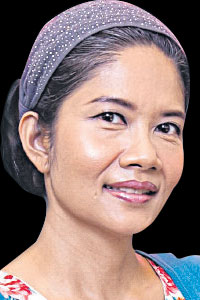Out of 89 nations, Thailand came in sixth on CEOWORLD's list of the world's best healthcare systems, announced just in August of this year.
Taiwan topped the list, followed by South Korea and Japan. The rankings were determined by the magazine's Health Care Index -- a statistical analysis of each healthcare system's overall quality, taking into consideration such factors as infrastructure, professional competency, cost, availability of quality medicine, government readiness, and other factors.
Being in the top 10 is encouraging for the government, as it indicates the country has been successful in the development of its healthcare sector. Sadly, the high score is misleading.
The fact is that the CEOWORLD ranking will mean nothing to the majority of Thais, who typically have to wait hours at government hospitals in order to see a doctor, often for a short consultation and prescription. This will be followed by another long wait at the pharmacy to get medicine.
Meanwhile, overworked doctors at the OPD have to examine too many patients, some with minor health problems that don't require treatment by specialists.
Overcrowded, overused government hospitals with overworked staff signal inefficiencies in the healthcare system.
The Ministry of Public Health (MOPH) has been attempting to address these issues through various policies. Since Oct 1, the latest project allows patients to pick up medicine at their local drugstore instead of the hospital pharmacy.
This initiative currently involves 50 hospitals and 500 pharmacies, as listed on the MOPH's website. In Bangkok, Lerdsin, Rajavithi and Nopparat Rajathanee hospitals are pioneers, while in the provinces, participating hospitals can be found in Ratchaburi, Rayong, Nakhon Sawan, Uttaradit, Chiang Rai, Trang and Phuket, to name a few.
However, both doctor and patient under the Universal Coverage Scheme must agree to this arrangement, and at present the only drugs covered in the scheme are for the treatment of diabetes, hypertension, asthma and psychiatric disorders.
Implemented in 2002, Universal Health Coverage (UHC) aims to provide all Thai citizens with quality healthcare, regardless of socio-economic status.
As designated by the United Nations, International Universal Health Coverage Day falls on this Thursday.
Thailand's UHC is internationally recognised as a success and an example to other countries of how to provide low-cost and easy-to-access treatment. However, the way it currently operates may have contributed to the problem of overcrowded and overused hospitals.
Primary healthcare reform has been underway to shift from a hospital-based to a community-based model, through routing patients to a primary healthcare unit in every district of Thailand.
Since 2016, the more holistic and family-focused Primary Care Cluster (PCC) encourages people to consult a mor krob krua, or family physician, including via social media.
Family physicians, thus, play a bigger role in providing treatment as well as educating people on health promotion and disease prevention. Ideally, this comprehensive and continuous approach will cover a multitude of physical and emotional health problems over the course of a person's life cycle, taking in family, changing life events, and the environment.
By 2026, the number of PCCs nationwide is to increase, to cover all Thais under this proactive healthcare model. In parallel, the number of practitioners in family medicine will also increase, in line with primary healthcare reform targets.
In Thailand, this is a relatively new discipline, with around 8,000 family physicians being certified since the curriculum became available in 1998. The National Conference of Family Medicine 2019, held Nov 27-29 at Al Meroz Hotel, Bangkok, highlighted the progress that has been made in this discipline over the last two decades, and how it will be instrumental for providing effective primary healthcare to meet with changing societal demands and an ageing society.
Elsewhere in the world, the family physician has long been the first point of contact and provider of continuous and comprehensive care, associated with better health outcomes and lower healthcare expenditure.
For Thais, family physicians are not yet something that people are used to. But if the programme can be implemented efficiently, the doctor-family relationship should become a lifelong partnership for maintaining good health, preventing disease and encouraging individuals to take charge of their own well-being.
Kanokporn Chanasongkram is a feature writer for the Life section of the Bangkok Post.
